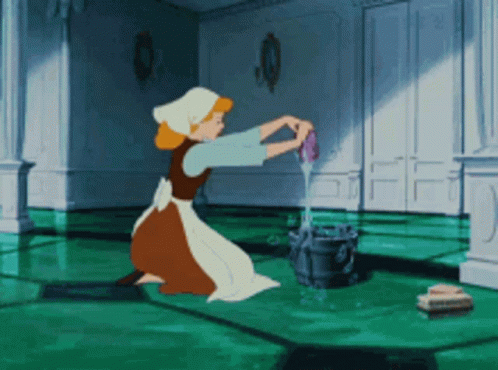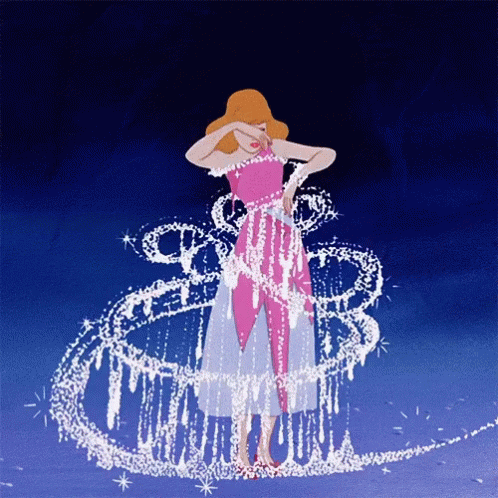What Does Cinderella Mean?
The term Cinderella in the realm of sports refers to a team that is considered an underdog but surpasses expectations and achieves more than what is typically anticipated of them. This term is commonly used during the March Madness tournament when a team that is perceived as less skilled or less likely to win manages to upset other “better” teams and advance further in the tournament. These Cinderella sports teams are beloved by fans because they demonstrate that the “little guy” can triumph and provide additional entertainment value. For instance, in the 2006 March Madness tournament, George Mason University became a fan-favorite Cinderella team. Despite being a lower-seeded team, they managed to reach the Final Four, exceeding the expectations of many. This unexpected success made them a memorable Cinderella story in the world of college basketball. Here are some examples of how to use the term Cinderella in conversation:
- “Did you see that game last night? The underdog team pulled off a Cinderella victory!”
- “I love rooting for the Cinderella teams in March Madness. It’s so thrilling to see them defy the odds.”
- “The Cinderella story of this year’s tournament is definitely the 15th seed that made it to the Sweet 16.”
- “I always cheer for the Cinderella teams because they bring so much excitement and unpredictability to the tournament.”
- “The Cinderella team’s run in the tournament has captured the hearts of fans everywhere.”
It’s important to note that the term Cinderella does not have a sexual connotation in this context. It is simply used to describe an underdog sports team that exceeds expectations.



What Does Cinderella Mean From a Girl?
When a girl uses the term Cinderella, it is typically used in the same way as everyone else. Girls use it to refer to a sports team that is considered an underdog but manages to surpass expectations and achieve more than what is typically anticipated of them. Just like guys, girls love rooting for these Cinderella teams because they demonstrate that the “little guy” can triumph and provide additional entertainment value.
Here are some key points to consider:
- Specific meaning from a girl: Girls use the term Cinderella to refer to underdog sports teams that exceed expectations and achieve unexpected success.
- How girls use it: Girls may use Cinderella in conversations with their friends or when discussing sports events, particularly during tournaments like March Madness.
- How to reply: If someone mentions Cinderella in a conversation with you, you can show your enthusiasm and engage in a discussion about the team’s performance or share your own favorite Cinderella stories.
It’s important to note that the term Cinderella does not have a specific meaning from a girl compared to everyone else. Girls use it similarly to guys when discussing underdog sports teams and their unexpected achievements. So, if you’re talking to a girl about sports and she mentions Cinderella, you can join in the excitement and discuss the team’s impressive performance.
Example 1:
- Girl: Did you see that game last night? The underdog team totally Cinderella’d their way to victory!
- Guy: Yeah, it was amazing! I love seeing Cinderella stories in sports.
Example 2:
- Girl A: I can’t believe how well that team is doing in the tournament. They’re such a Cinderella!
- Girl B: I know, right? It’s so inspiring to see them exceed expectations.
Example 3:
- Guy 1: Who are you rooting for in the playoffs?
- Guy 2: Definitely the underdog team. They have a chance to pull off a Cinderella run!
Example 4:
- Girl: I love watching March Madness. It’s always exciting to see which team will become the Cinderella of the tournament.
Example 5:
- Guy: Did you catch that upset in the game last night?
- Girl: Yeah, it was a classic Cinderella moment. The underdog team really proved themselves.
What Does Cinderella Mean From a Guy?
When a guy uses the term Cinderella, it can have similar meanings to when a girl uses it. Guys also use it to refer to underdog sports teams that exceed expectations and achieve unexpected success. However, there may be some additional nuances in how guys use the term.
Here are some possible ways that guys might use the term Cinderella:
- To express admiration: Guys might use Cinderella to express their admiration for a sports team that has defied the odds and achieved remarkable success. They may use it to acknowledge the team’s impressive performance and show their support.
- To discuss sports events: Guys may use Cinderella in conversations with their friends or when discussing sports events, particularly during tournaments like March Madness. It can be a way for them to engage in discussions about the teams’ performances and share their excitement.
- To show their knowledge of sports: Guys who are passionate about sports may use Cinderella as a way to showcase their knowledge and understanding of the game. It can be a way for them to demonstrate their expertise and engage in conversations with other sports enthusiasts.
When a guy uses Cinderella, it is usually with positivity and excitement. They appreciate the underdog story and enjoy witnessing unexpected achievements in sports. If a guy mentions Cinderella in a conversation with you, you can respond by showing your enthusiasm and engaging in a discussion about the team’s performance or sharing your own favorite Cinderella stories.
It’s important to note that guys generally use Cinderella similarly to girls when discussing underdog sports teams and their unexpected achievements. However, individual usage may vary, so it’s always best to consider the context of the conversation and the specific guy you’re talking to.
Example 1:
- Guy 1: Did you see that game last night? The underdog team pulled off a Cinderella victory!
- Guy 2: Yeah, it was insane! They really came out of nowhere and shocked everyone.
Example 2:
- Guy 1: I love rooting for the Cinderella teams in March Madness. It’s so thrilling to see them defy the odds.
- Guy 2: Same here! It’s like watching a real-life underdog story unfold right before our eyes.
Example 3:
- Guy 1: The Cinderella story of this year’s tournament is definitely the 15th seed that made it to the Sweet 16.
- Guy 2: Absolutely! No one saw that coming. They’re the ultimate Cinderella team this year.
Example 4:
- Guy 1: I always cheer for the Cinderella teams because they bring so much excitement and unpredictability to the tournament.
- Guy 2: That’s what makes March Madness so great. You never know which team will become the next Cinderella and capture everyone’s attention.
Example 5:
- Guy: The Cinderella team’s run in the tournament has captured the hearts of fans everywhere.
- Girl: I know, right? It’s amazing to see an underdog team unite people and create such a buzz.
Origin of Cinderella
The term “Cinderella” in the context of sports does not have a clear origin or derivation. It is likely that the term originated from the fairy tale character Cinderella, who overcame adversity and achieved success. The term has been adopted in the sports world to describe underdog teams that surpass expectations. It is not a popular typo or misspelling of another word.
Frequently Asked Questions
Slangs similar to Cinderella
Underdog, upset, fairy tale ending, triumph, and beloved are similar to “Cinderella” because they all describe elements of a sports story where a team or person surpasses expectations, achieves unexpected success, and is loved or adored by fans. These terms are used to convey the idea of victory against the odds and the excitement and admiration that comes with it.
Is Cinderella A Bad Word?
No, “cinderella” is not a bad word or vulgar word. It is commonly used to describe an underdog sports team that achieves more than what is expected of them. It is often used in the context of the March Madness tournament when an underdog team upsets other “better” teams and goes farther than expected.
Is Cinderella a Typo or Misspelling?
No, “cinderella” is not a misspelling or typo. In the context of sports, it refers to an underdog team that surpasses expectations and achieves more than what is typically anticipated of them, particularly in the March Madness tournament.





